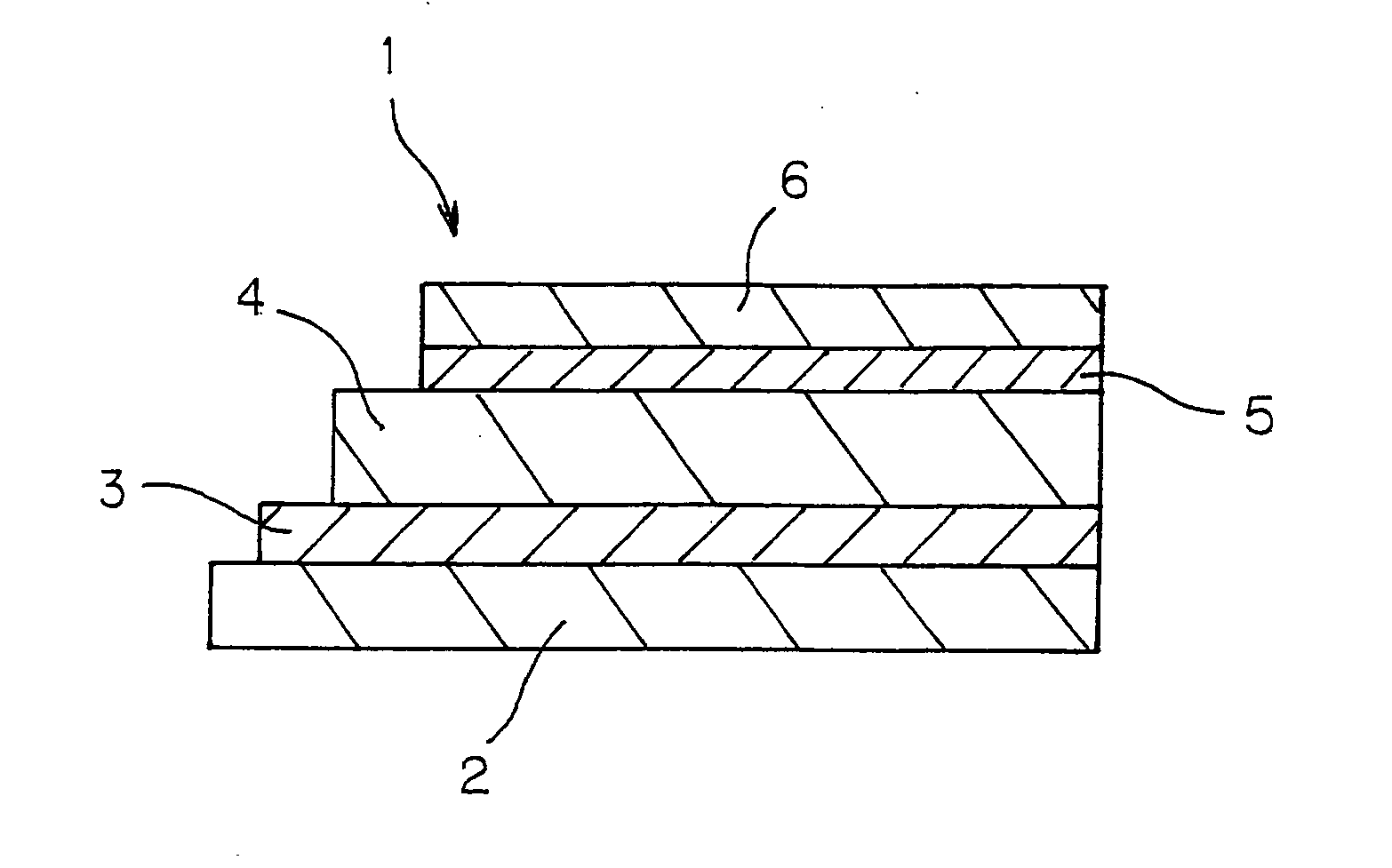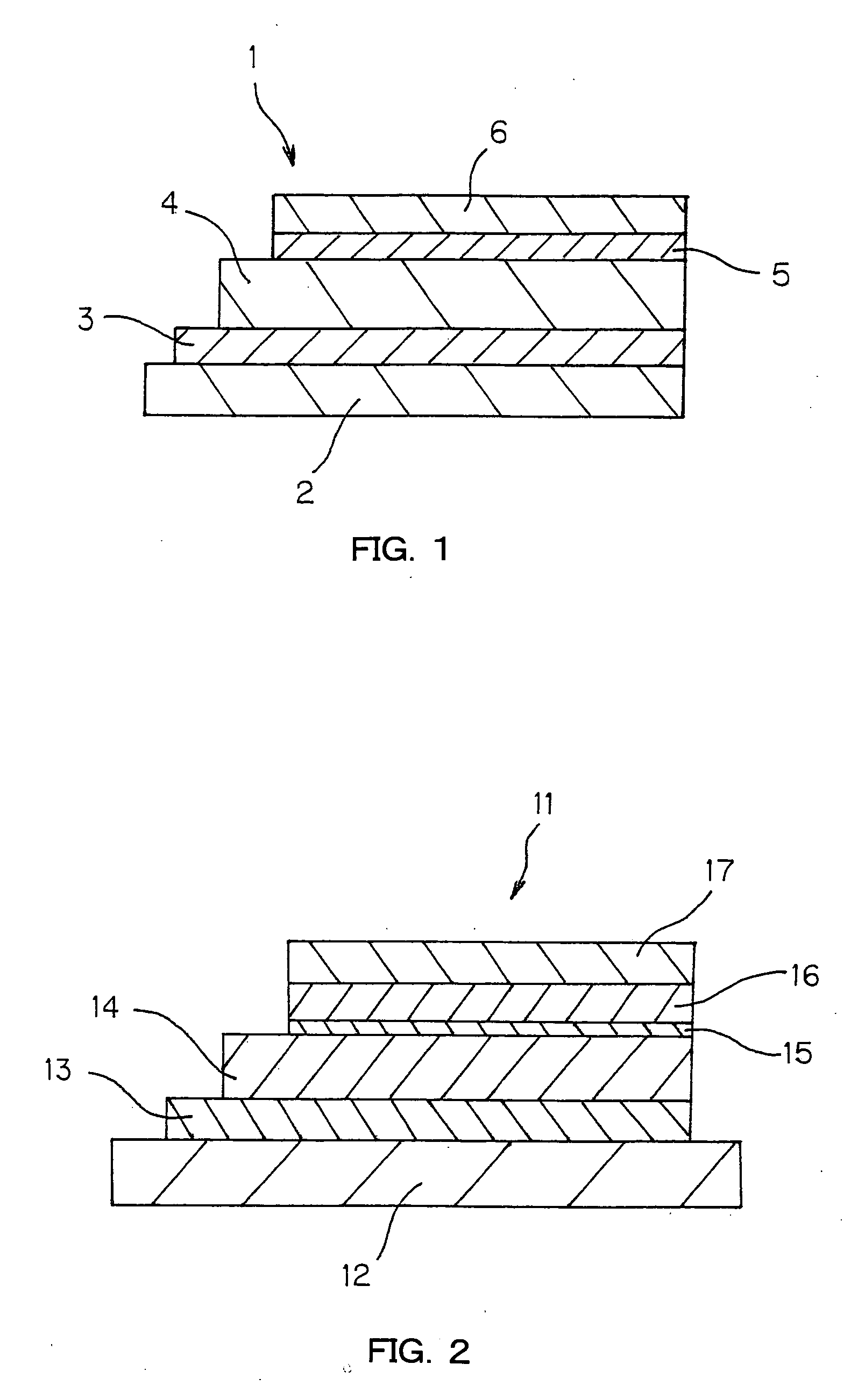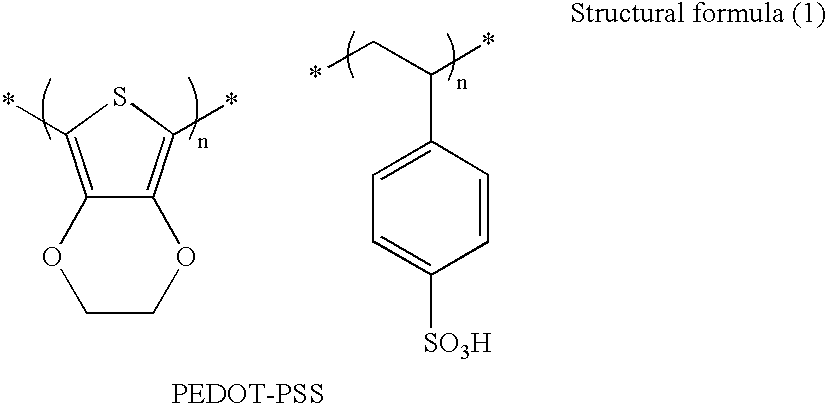Organic electroluminescent display
an electroluminescent display and electroluminescent technology, applied in the direction of discharge tube luminescnet screen, discharge tube/lamp details, organic semiconductor devices, etc., can solve the problems of oxidation the inability to obtain high-quality image display, and the degraded characteristics of the organic layer or the electron injection layer. achieve high reliability, high efficiency, and high-quality image display
- Summary
- Abstract
- Description
- Claims
- Application Information
AI Technical Summary
Benefits of technology
Problems solved by technology
Method used
Image
Examples
example 1
[0087] A transparent glass substrate (nonalkali glass NA35 manufactured by NH Techno Glass K.K.) having a size of 25 mm×25 mm and a thickness of 0.7 mm was prepared as a substrate, this transparent glass substrate was cleaned in accordance with the law, and thereafter an Al thin film (thickness of 100 nm) was formed by a magnetron sputtering method. In the formation of the Al thin film, Ar was used as a sputter gas, and a pressure of 0.15 Pa, and DC output of 200 W were set. Next, to impart a function of promoting the hole injection onto the Al thin film, a thin film of indium tin oxide (ITO) (thickness of 20 nm) was formed by a magnetron sputtering method. In the formation of the ITO thin film, a mixture gas (volume ratio of Ar:O2=100:1) of Ar and O2 was used as the sputter gas, and a pressure of 0.1 Pa and DC output of 150 W were set.
[0088] Next, with respect to the anode layer of the Al thin film and ITO thin film, a low-resistivity meter Loresta-GP (MCP-T600) manufactured by Di...
example 2
[0104] The organic EL display apparatus was prepared in the same manner as in Example 1 except that a ZrN thin film (thickness of 50 nm) was formed as the barrier conductive layer instead of the TiN thin film on the same conditions.
[0105] It is to be noted that as a result of the measurement in the same manner as in Example 1, the surface resistivity of the ITO thin film including the ZrN thin film was 20 Ω / . As a result of the measurement of the moisture-vapor transmission, oxygen transmission rate, specific resistance, and optical transparency in the visible region of 380 to 780 nm of the ZrN thin film in the same manner as in Example 1, the moisture-vapor transmission was 0.3 g / m2 / day, the oxygen transmission rate was 0.2 cc / m2 / day·atm, the specific resistance was 3.4×10−4 Ω·cm, and the visible region average transparency was about 70%.
[0106] The current density at the time of the application of the voltage of 6 V onto the anode and cathode of the organic EL display apparatus w...
example 3
[0107] The organic EL display apparatus was prepared in the same manner as in Example 1 except that an Au thin film (thickness of 30 nm) was formed as the barrier conductive layer instead of the TiN thin film in a vacuum vapor deposition method (degree of vacuum of 5×10−5 Pa, film forming rate of 0.5 A / second).
[0108] It is to be noted that as a result of the measurement in the same manner as in Example 1, the surface resistivity of the ITO thin film including the Au thin film was 15 Ω / . As a result of the measurement of the moisture-vapor transmission, oxygen transmission rate, specific resistance, and optical transparency in the visible region of 380 to 780 nm of the Au thin film in the same manner as in Example 1, the moisture-vapor transmission was 0.1 g / m2 / day, the oxygen transmission rate was 0.1 cc / m2 / day·atm, the specific resistance was 1.6×10−4 Ω·cm, and the visible region average transparency was about 40%.
[0109] The current density at the time of the application of the v...
PUM
 Login to View More
Login to View More Abstract
Description
Claims
Application Information
 Login to View More
Login to View More - R&D
- Intellectual Property
- Life Sciences
- Materials
- Tech Scout
- Unparalleled Data Quality
- Higher Quality Content
- 60% Fewer Hallucinations
Browse by: Latest US Patents, China's latest patents, Technical Efficacy Thesaurus, Application Domain, Technology Topic, Popular Technical Reports.
© 2025 PatSnap. All rights reserved.Legal|Privacy policy|Modern Slavery Act Transparency Statement|Sitemap|About US| Contact US: help@patsnap.com



